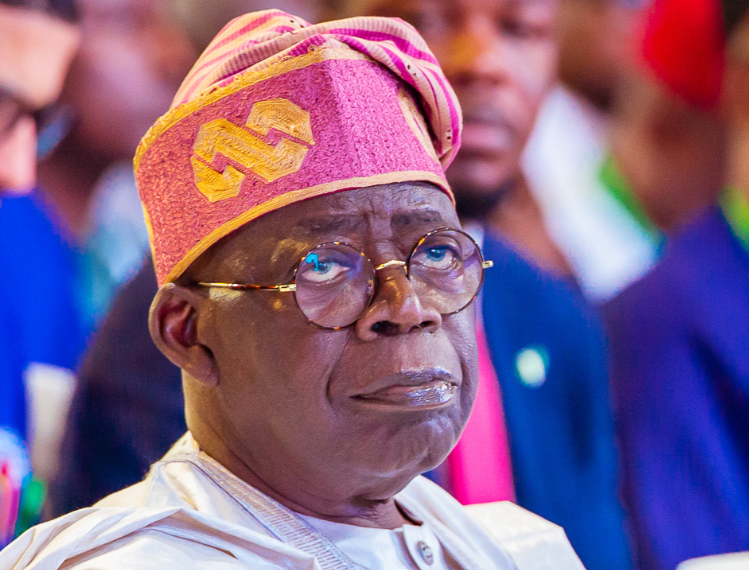
President Tinubu
Ten years after the partial privatisation of the Nigerian Electricity Supply Industry, NESI, the Federal Government, on Monday, admitted that the exercise had failed to meet its objectives.
The government described as shameful the current generation, transmission and distribution level of just over 4,000 Megawatts.
Speaking in Abuja at the 2023 NESI Market Participants and Stakeholders Roundtable, NMPSR, President Bola Tinubu said after 10 years of privatisation about 90 million Nigerians were still without power supply.
The three-day conference has as theme: ‘NESI privatisation and its 10-year milestone: the journey so far, opportunities and prospects’.
Represented by the Special Adviser, Energy and Infrastructure, Office of the Vice President, Mr Sodiq Wanka, President Tinubu noted that the investments expected from the private sector never came.
According to him, “the key objectives of the privatisation effort were to improve the efficiency of the power sector, unlock private sector investments and unleash the potential of the nation through an energized economy.
“10 years on, I believe it is fair to say that the objectives of sector privatisation have by and large, not been met.
“Over 90 million Nigerians lack access to electricity. The national grid only serves about 15% of the country’s demand. This has left households and factories to rely on expensive self-generation, which supplies a staggering 40% of the country’s demand.
“What is worse, the total amount of electricity that can be wheeled through the national grid has remained relatively flat in the last 10 years.
“The grid capacity has increased from just over 3000Mw to typically just over 4,000Mw today. Versus a 40,000Mw target by 2020 that the Federal Government had set pre-privatisation.”
‘No automatic renewal of licence’
On his part, the Minister of Power, Mr. Adebayo Adelabu expressed misgivings over the decision of the past government to embark on privatisation, noting that commercialisation would have been the best option.
Mr Adelabu stated that the licences granted to investors in the assets would not be automatically renewed until they prove that they have met the terms contained in the original licence.
According to him, “The question for everyone is: have we achieved the objectives of the privatisation on the scale of 0-100? I will say no.
“Which is why it is pertinent for all the players in the industry to come to a roundtable to discuss the reasons for the failures and steps to be taken to remedy this.”
He noted that the government ought to have commercialised the sector in 2013.
The Minister pointed out that “most countries throughout the world do not privatise their electricity supply value chain, from generation to transmission and distribution.
“But, bad enough that we have done this, how can we work around the current status to achieve our priorities and objectives? This is not a job for one person or entity but it requires collaboration from all players.”
Chief Adelabu warned that at the expiration of operational licences of the distribution companies, DisCos, renewals will not be automatic.
“Ten years down the line, the licences are expiring and it is now the time for renewals. Renewals are not automatic. Any of the privatised company that has not lived up to expectations will not have its licence renewed,” he stressed.
In his remarks, the Senate President, Godswill Akpabio pointed out that while the sector had been acknowledged as critical to the economic growth of the country, not much has been achieved.
Senator Akpabio who was represented by the Chairman of the Senate Committee on Power, Eyinaya Abaribe, noted that while some progress has been made, the objective of improving power supply to Nigerians has remained unmet.
He said the parliament was committed to backing the sector with laws that would create the best business environment for the sector, adding that an amendment of the 2023 Electricity Act was underway that would take into cognizance of the latest developments in the industry.
Earlier, the Chairman of, the Conference Organising Committee, Prof. Stephen Ogaji described the challenges facing the power sector as formidable.
Prof Ogaji pointed observed that “without a doubt, the energy sector is the heartbeat of any thriving economy, and the NESI Roundtable demonstrates our collective commitment to advancing this critical sector.
“We gather here today as representatives from various sectors — public and private, regulatory bodies, investors, technocrats, and visionaries — all driven by a shared purpose, which is to enhance and shape the trajectory of Nigeria’s energy future.”







